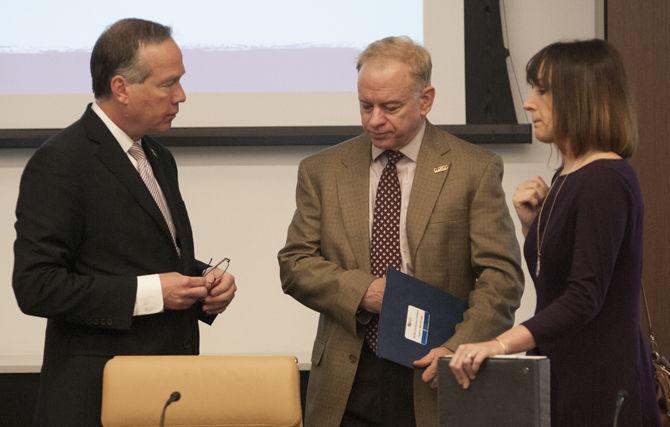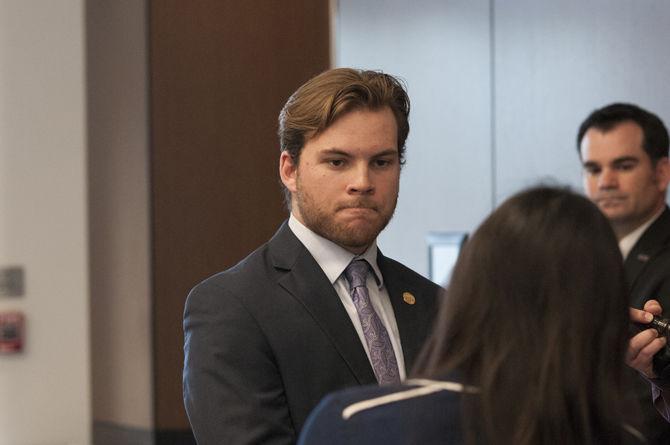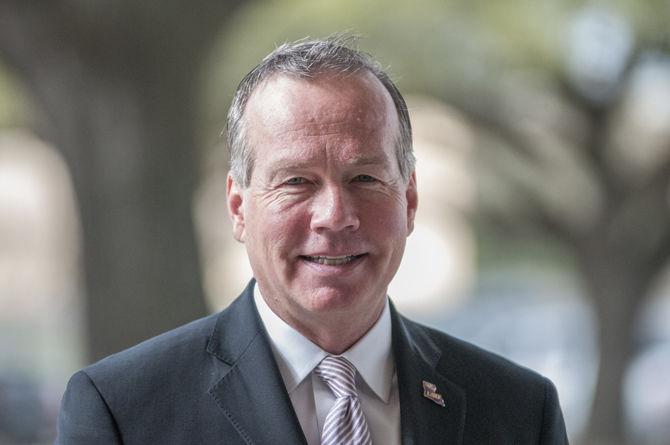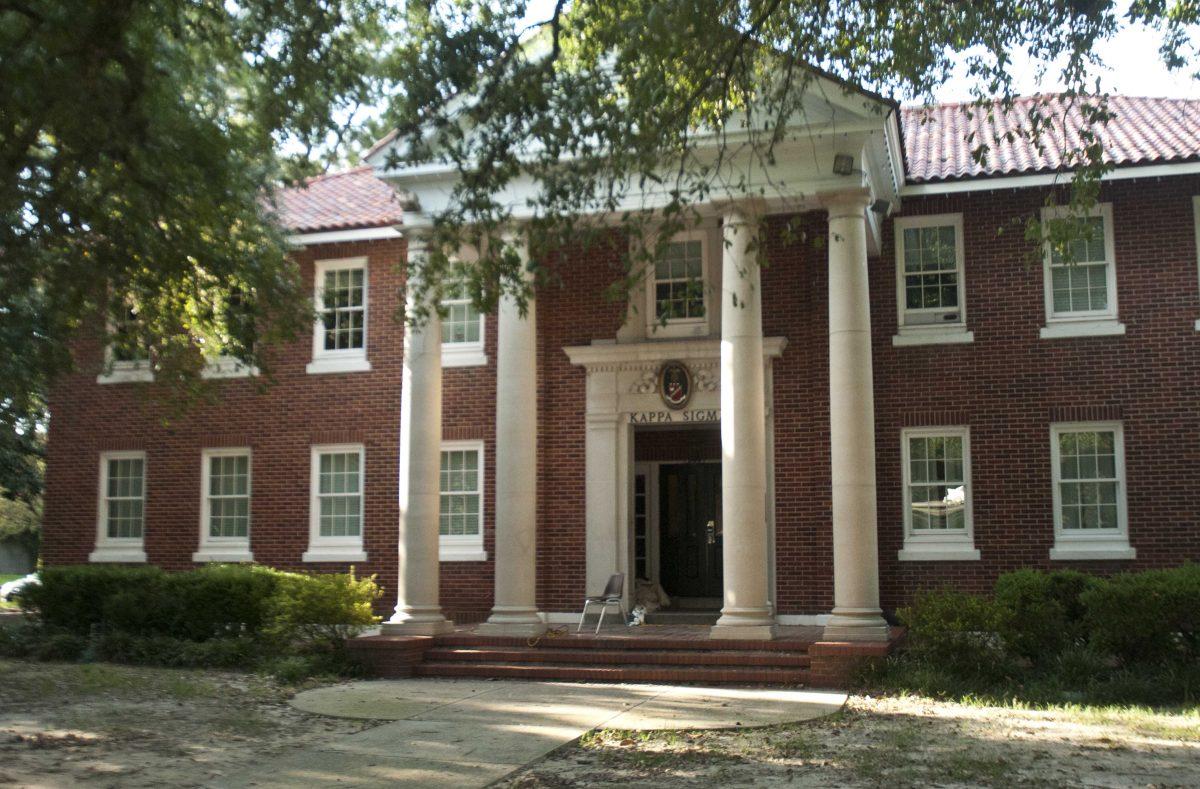After over four months of deliberations, LSU President F. King Alexander’s Task Force on Greek Life presented a list of 28 recommendations regarding the future of Greek organizations at the University, including an amnesty policy and moving Greek tailgating to chapter houses.
However, the family of Maxwell Gruver — the University freshman whose death as a result of hazing by Phi Delta Theta Fraternity sparked the creation of the Task Force — said the recommendations provide only the “appearance of reform,” in a statement on the Max Gruver Foundation website.
The family called the final report “disgraceful” and said it did not deserve to be associated with their son’s memory.
“The report epitomizes what happens when task forces like these are comprised of members with vested interests in perpetuating the current, failed Greek Life system,” the family said. “[The report] proffers no real meaningful changes to Greek Life that would have prevented the death of our son, any of the other injuries, or sexual assaults that have plagued LSU’s fraternities.”
During the Task Force meeting on Feb. 21, chairman Rob Stuart said the Gruver family played an integral role in crafting the recommendations. Specifically, the recommendation to form web portals for each Greek chapter and the formation of uniform minimum job qualifications for house managers.
The family said the recommendation that Greek chapters form advisory councils comprised of alumni and community volunteers made it “clear the Task Force decided to bend to the concerns and traditions of national fraternities at the expense of student safety.”
The family said they hope Alexander will see the recommendations are not enough, and will look to them and other families for “genuine recommendations on changes with real potential.”
LSU Media Relations director Ernie Ballard said as Alexander reviews the recommendations he “hopes to continue to dialogue with the Gruver family.”
“We are all working toward the same goal of improving the safety in our Greek system,” Ballard said.
The Task Force recommended the Interfraternity Council chapters be required to move tailgating to chapter houses, beginning the 2018 football season.
All Greek chapters will be required to implement a written policy banning alcohol and common-source alcohol from chapter premises and during registered off-campus social events, such as social mixers or “exchanges,” if Alexander chooses to make the recommendation part of official University policy.
Task Force chairman Rob Stuart said the group focused on recommendations that would encourage “personal accountability” among Greek Life members to “change the culture” surrounding the organizations.
Alexander expressed the need for students to “buy-in” to the recommendations, which he said is possible due to the input of students on the Task Force.
“Our Greek leaders have been great and they’re all in the room right now,” Alexander said. “They’ve told us what we’ve done wrong and how we can work more collaboratively. The amnesty policy was a recommendation from our students.”
The desire for personal accountability is evident in the amnesty policy the group recommends the University adopt.
Under the amnesty policy, students would be able to report an incident, whether medical or non-medical, and not face disciplinary action from the University or the Greek chapter, Alexander said.
“We’ve come to realize how important an amnesty policy is for those students who do the right thing at the right time,” Alexander said. “That’s what we want student leaders to know. Doing the right thing should not be penalized or punished.”
LSU Student Government president Jason Badeaux said Greek Life leadership is prepared to move forward with the recommendations the Task Force has made.
“We can’t go back,” Badeaux said. “We have to throw the rear-view mirror out and change the way we operate as a community.”
Badeaux said the amnesty policy is very important in shifting the focus to “individuals who are causing the problem.”
“A lot of our issues are individual specific and not chapter specific,” Badeaux said.
Badeaux said he is excited about the prospect of implementing chapter advisory committees as a way to strengthen the trust between the Greek community and the University.
“Before, it was the office and the chapters,” Badeaux said. “Now, we can have an advisory committee that bridges the gap between the two.”
Also included in the recommendations was a requirement that Greek chapters limit attendance at Greek chapter events with alcohol to three non-member guests for every member, with the exception of alumni and family events.
The Task Force also recommended the University require each Greek chapter to implement a “drug-free policy for chapter houses,” with consequences and enforcement mechanisms presented to the Greek advisory board chairs and the University.
The Task Force proposed timeline spans from February 2018 to August 2019 for ongoing implementation and review processes. Alexander is scheduled to provide his official response to the recommendations by the end of February, including a finalized timeline for the implementation of each recommendation.
“We’re looking for best practices,” Alexander said. “We think [these recommendations] could reshape the culture and the practices of our fraternities for the next 25 years.”
In March, Alexander will bring the recommendations of the Task Force to a meeting of presidents from other universities. He said a number of universities plan to adopt the same, or similar policies, for their Greek organizations.
Stuart said the Gruver family advocated for implementing a web portal for each Greek chapter so that potential pledges and their families have a “transparent, credible and objective source of information” that includes a rolling, five-year history of chapter disciplinary matters.
Stuart said these websites could be adopted by the entire SEC, and the University’s should be online before the next school year.
However, the five-year history will only include investigations that ended in adjudication. Not every complaint filed will be listed on the website, only those which were “found to have merit.” Less than one year before the death of Gruver, Phi Delta Theta was under investigation following complaints of alleged hazing of new members. Since this investigation did not end with an adjudication, the investigation would not be listed on the new web portal.
Stuart said the University would need to “work through” how to determine what is listed on each chapter’s web portal.
Another recommendation the Gruver family advocated for was the development of minimum job qualifications for Greek chapter house managers. Stuart said the Gruver family wanted the University to play a stronger role in the hiring and review of house managers.
The Task Force recommendations were divided into six categories: University policy improvements; organizational process improvements; Greek organization accountability and oversight improvements; new member recruitment and education policy and process improvements; ongoing training and education activity improvements and social activity policy and process improvements.
Stuart opened the Feb. 21 meeting with a moment of silence for Gruver. The Task Force was formed by Alexander two weeks after the freshman’s death.
Public comments were made by Shawn Lowe of the LSU Greek Alumni Unity Council. Lowe praised the Task Force for the “many long hours” of work and for listening to the input of the alumni council.
The alumni council will continue to serve as a “proactive leader” and will partner with the University to ensure the specific implementation process will create a positive experience for Greek Life members, Lowe said.
“We’ve said from day one we want a safe environment,” Alexander said. “A vast majority of these recommendations are being considered by peer institutions. The SEC makes up 10 percent of all Greeks in America…this goes well beyond the campus of LSU.”



















